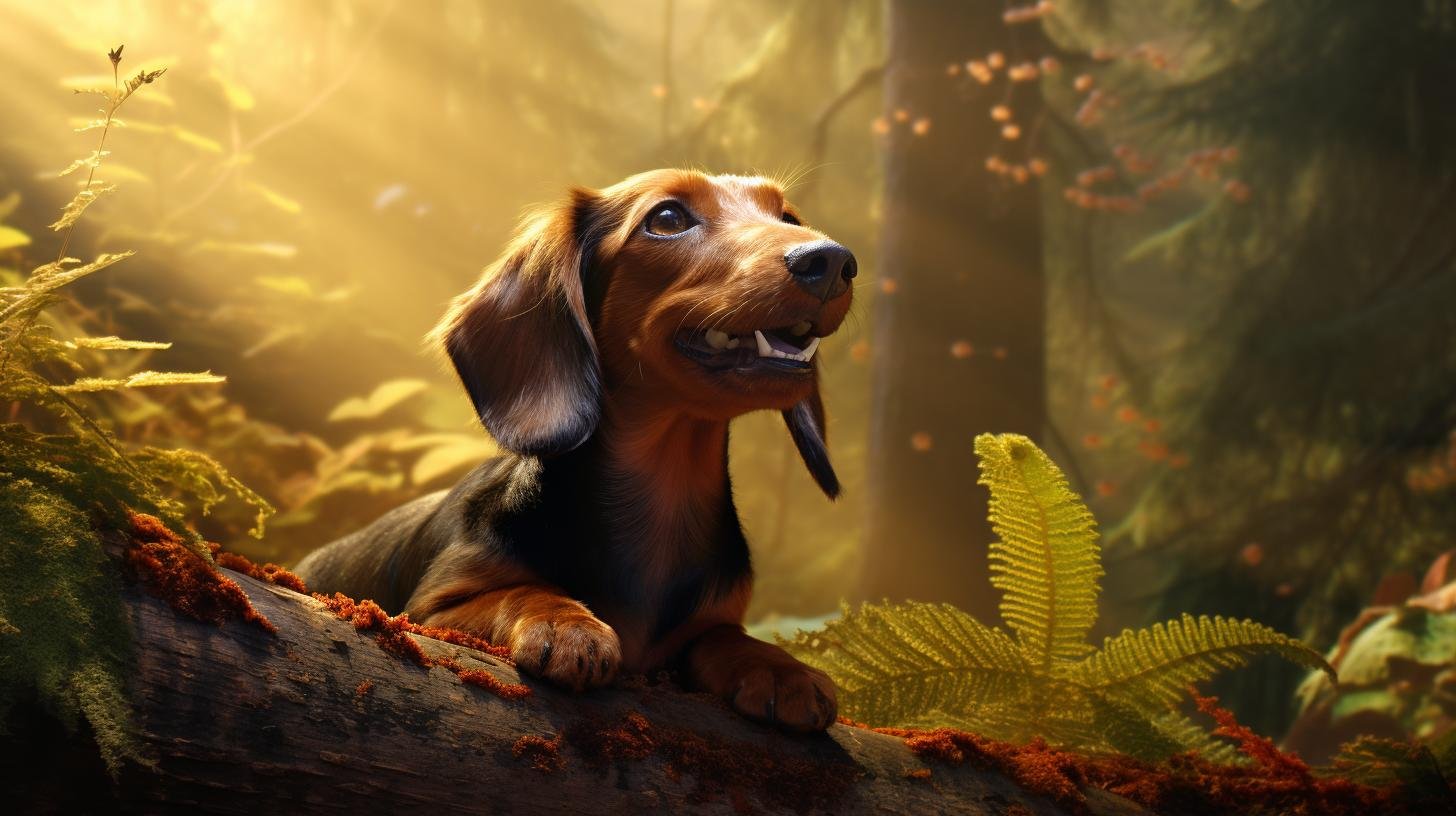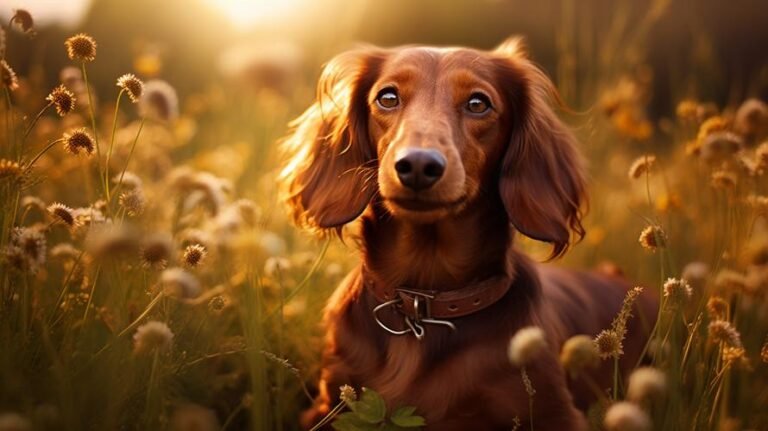Did you know that Dachshunds were originally bred to fearlessly hunt badgers and other tunneling animals, hence their long bodies and short legs? That’s right; these adorable, unique-looking dogs were once fearless hunters! Their name even comes from the German word “Dach” meaning badger and “hund” meaning dog. Now, the question is, are these former fierce hunters, now charming lovable canines, a good choice for a pet?
Dachshunds, also known as ‘wiener dogs’ because of their long hotdog-like shape, have become one of the most popular dog breeds around the world. They’re currently ranked 12th most popular breed by the American Kennel Club. What has led to their increasing popularity? And should you consider having one as a pet? Let’s delve into the world of Dachshunds and find out.
Firstly, Dachshunds are known for their unique appearance. Their long bodies, short legs, and floppy ears make them stand out in a crowd, and their expressive eyes always seem to be full of mischief. They come in three varieties – Smooth, Wirehaired, or Longhaired, and both standard and miniature sizes, offering a great choice for pet lovers.
Now, let’s talk about their personality. Dachshunds are incredibly loyal to their family members. They tend to form a particularly strong bond with one person in the family, and their loyalty to that individual can be unbelievable. Doxies, as they are affectionally known, are brave, sometimes to the point of rashness, and marvelously curious, always on the lookout for an adventure.
However, their lovable personality comes with a downside. This breed may have a stubborn streak that can make training a bit of a challenge. If you wish to train a Dachshund, you’ll need to practice consistency and patience. It’s better to utilize positive reinforcement, such as treats and praises, as opposed to harsh methods.
Being exceptionally alert dogs, Dachshunds can make great watchdogs. They possess a big bark for such little dogs and won’t hesitate to use it. This can be especially advantageous if you live alone or simply want an extra pair of ‘ears’ around the house. However, it’s important to teach them not to get too carried away with their barking, as it may turn into a nuisance.
When we talk about health, Dachshunds generally have a good lifespan of 12-16 years. But, like all breeds, they have some predispositions. Their unique body shape puts them at a higher risk for back issues, specifically Intervertebral Disk Disease (IVDD). Maintaining a healthy weight and careful handling can significantly reduce the risk of such issues.
As for exercise, these dogs are moderately active and will require regular walks to remain healthy and stimulate their minds. However, they don’t require extensive exercise routines. So, if you love being outdoors but aren’t up for marathon training sessions, a Dachshund could be a good companion.
In terms of grooming, Dachshunds are relatively easy to maintain. Regular brushing will keep their coat clean and shiny, and occasional baths will keep them smelling fresh. Longhaired and wirehaired varieties may require a bit more grooming, but nothing too high maintenance.
For families with children and other pets, Dachshunds are generally a good fit. They are very social and enjoys company. However, supervision is important when they’re playing with kids or bigger dogs to avoid any unintended harm due to their small size.
Without a doubt, Dachshunds are full of personality. They can offer endless entertainment with their playful and often clownish behavior. Yet, like any dog breed, they have their own set of care requirements and potential health issues to be considered.
To sum it up, a Dachshund can indeed be a wonderful pet, but it’s essential to make sure their personality and needs align with your lifestyle. They require an owner who is willing to devote time to their training, exercise, and care. In return, they will offer you their undying loyalty, countless laughs, and unlimited affection. After all, those who have had a Dachshund as a pet often say: once you’ve had a Dachshund, it’s hard to have any other breed of dog.



